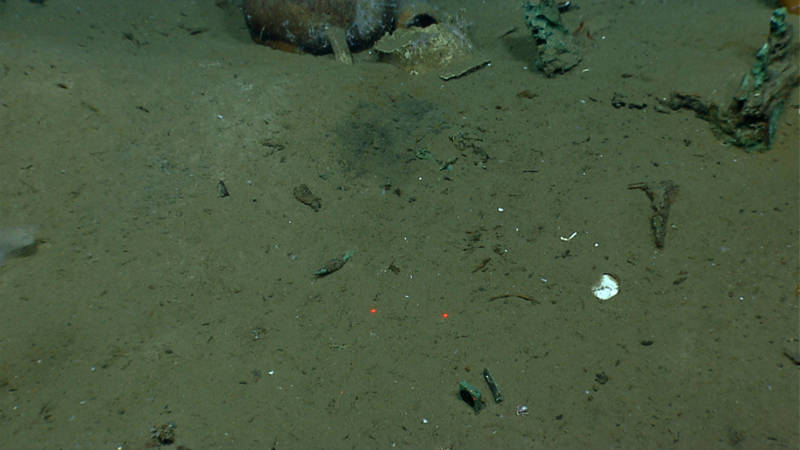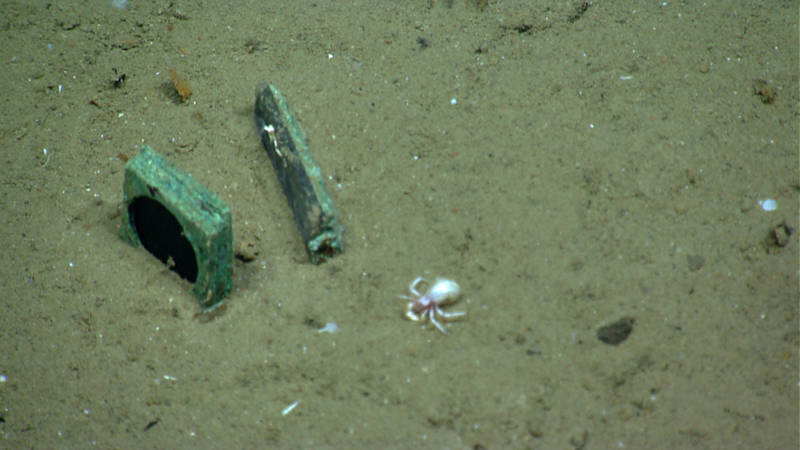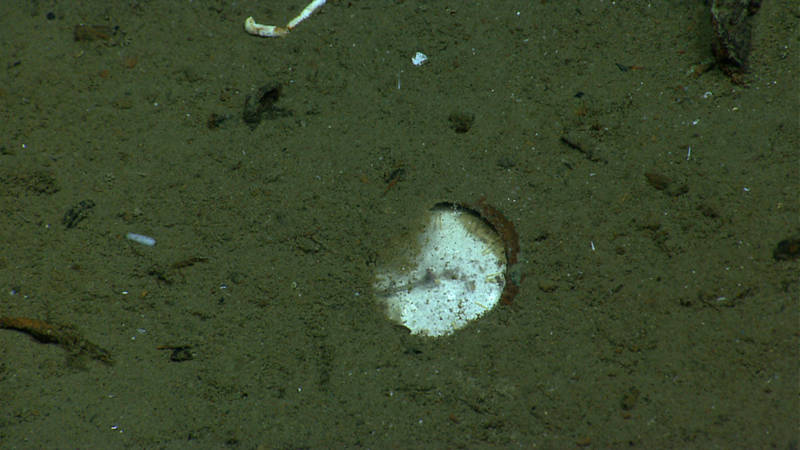
By Jeff Williams, Electrical Engineer
April 19, 2014

Octant and chronometer side by side on the seafloor. Image courtesy of the NOAA Office of Ocean Exploration and Research, Exploration of the Gulf of Mexico 2014. Download larger version (jpg, 1.3 MB).
Wednesday's dive was especially poignant for me. By sheer scheduling happenstance, I was piloting D2 during the part of the shipwreck survey when we discovered an octant and a chronometer partially exposed in the sand. The octant was recognized by one of the shading glasses protruding from the seafloor and the face of the chronometer was exposed - Roman numerals still visible, hands tragically stopped.

Octant shading glass protruding from seafloor. Image courtesy of the NOAA Office of Ocean Exploration and Research, Exploration of the Gulf of Mexico 2014. Download larger version (jpg, 1.3 MB). Video highlights from Dive 05.
I have more than admiration for navigation instruments and their use. When you live onboard a sailboat for ten years as my wife and I did, and when you sail 60,000 nautical miles circumnavigating the globe almost one and a half times, you come to understand that the sea is your master and that any sense of control you may have is only illusion. In this, you cannot help but develop an affinity for your navigation devices and a respect for their capacity in a way you might not feel toward a winch handle or a wall clock.
Twenty-five years ago when I started offshore sailing sextants were still in common use, especially among recreational sailors. If we had ever seen a GPS receiver it was an object of envy and awe, not to mention as big as a brick. Two hundred years ago, a navigator could not have conceived of the ubiquity of GPS devices today nor the technology needed to deploy that satellite system. Though I do think, once explained, he (forgive me, it's a fact of the times) would have understood – celestial bodies being celestial bodies and all.

Face of the chronometer. Image courtesy of the NOAA Office of Ocean Exploration and Research, Exploration of the Gulf of Mexico 2014. Download larger version (jpg, 1.4 MB).
So one has to be led to think that the shipwreck we were looking at foundered – or was lost at least – with all hands. No one would leave behind tools crucial to their being. And expensive ones at that.
As an “unexpected low” (according to the National Hurricane Center) developed around the Okeanos Explorer yesterday, I wondered whether the same thing might have happened 200 years ago. But instead of looking up the latest satellite imagery and computer-driven forecast on the NOAA website, the captain was looking up at the darkening clouds scudding past and squinting harder to maybe see the future better.
And he would have thought, 'No sights today, not with these clouds.'
NOAA expedition discovers ship’s timepiece silent for two centuries (April 23, 2014).